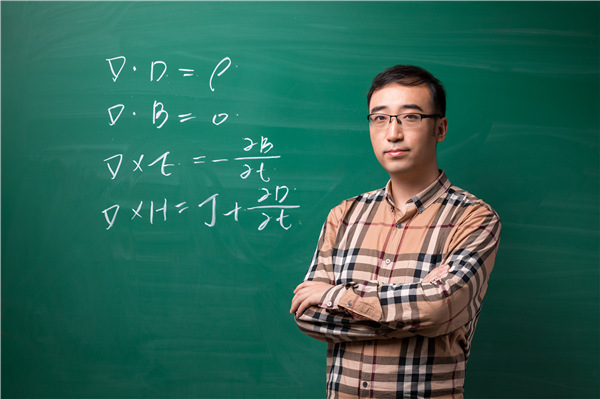Equating science with fun


High school teacher's wit and expertise are a formula for success and knowledge popularization.
Li Yongle is the kind of teacher most pupils and students wish they had. He is funny, smart and most importantly, he believes that math and physics can not just explain our existence but also deal with our everyday concerns.
How to find your Mr or Mrs Right, what is the loan prime rate and how is it different to the fixed rate mortgage, what is COVID-19, and where exactly are all the aliens? Everything seems to be covered in Li's short videos on the Xigua video app.
With more than 11 million followers, the 37-year-old, who has been teaching physics for 11 years in the High School Affiliated to Renmin University of China in Beijing, delves into the theories behind the hot issues with a skeptical eye and a sense of humor. Since 2017, he has posted over 400 videos to simplify complex topics.
When China launched Tianwen 1, the country's first independent Mars mission, on July 23, which began the nation's planetary exploration program, he posted a video explaining how the launch date was chosen, what the Hohmann transfer orbit is and why it is considered the best way of getting from Earth to Mars.
"I am not Mr Know-It-All. I just reproduce and reorganize the knowledge in books or online and present it in a relatable way, helping people better understand the world," Li says, adding that the internet provides a good opportunity to achieve equal education for all.
To further promote equality in education and science education among the public, Li signed an exclusive cooperation contract with the video app in late July.
Within the framework of the agreement, he plans to record the basic classes taken in high school with the other science video creators active on the app and post the videos on the platform for free.
Thanks to science video creators like Li, social media and video platforms have increased investment in supporting science video creation to make knowledge more accessible.
There were around 90,000 of these creators, who had posted nearly 25 million videos as of February and had each garnered tens of thousands of loyal followers, according to People's Daily.
Embracing the short video age, scholars say that technology helps make knowledge more accessible and attractive to the public. The number of short video users in China hit 773 million as of March, up by 125 million from the end of 2018, according to a report issued by the China Internet Network Information Center.
"The virtual classes can help students who cannot show up to the classroom and the parents who want to aid their children's learning to get access to the knowledge at a low cost," Li explains.
He adds that one positive of the coronavirus pandemic is that remote learning has benefited, with growing support for quality online education from governments and companies.
As well as delivering online video lessons, he also plans to share his experience of, and tips and tricks for, making popular science videos in a bid to cultivate more creators that will make knowledge even more accessible.
Although it is not easy for Li to build a virtual knowledge bridge for all, he is happy to see that social media platforms like Xigua have become a powerful force in the realm of public broadcasting of scientific information.
"There is a great deal of misinformation and pseudoscience online, but when people understand the theories behind real science, they will not be exploited," Li points out.
Many internet users have already benefited from his videos, and call him Yongle Dadian (after an ancient Chinese encyclopedia). Some joked that Li's lessons could help them enroll at Tsinghua University.
His leap year
Before he began posting the videos in 2017, Li was already trying to find creative ways of taking study beyond the classroom and textbooks.
Li, with a bachelor's degree in physics from Peking University and a master's in electronic engineering from Tsinghua University, became a physics teacher in 2009 at the High School Affiliated to Renmin University of China, one of the best high schools in the capital.
Li still remembers how stressful and tired he was during his first few years as a fledgling teacher, when he would stay up until midnight to prepare his lesson plans, notes and quizzes for the following day.
"Writing on a chalkboard can be erased, but once recorded and posted online, it will be stored for a long time," he says, adding that was why he started recording his lessons.




































